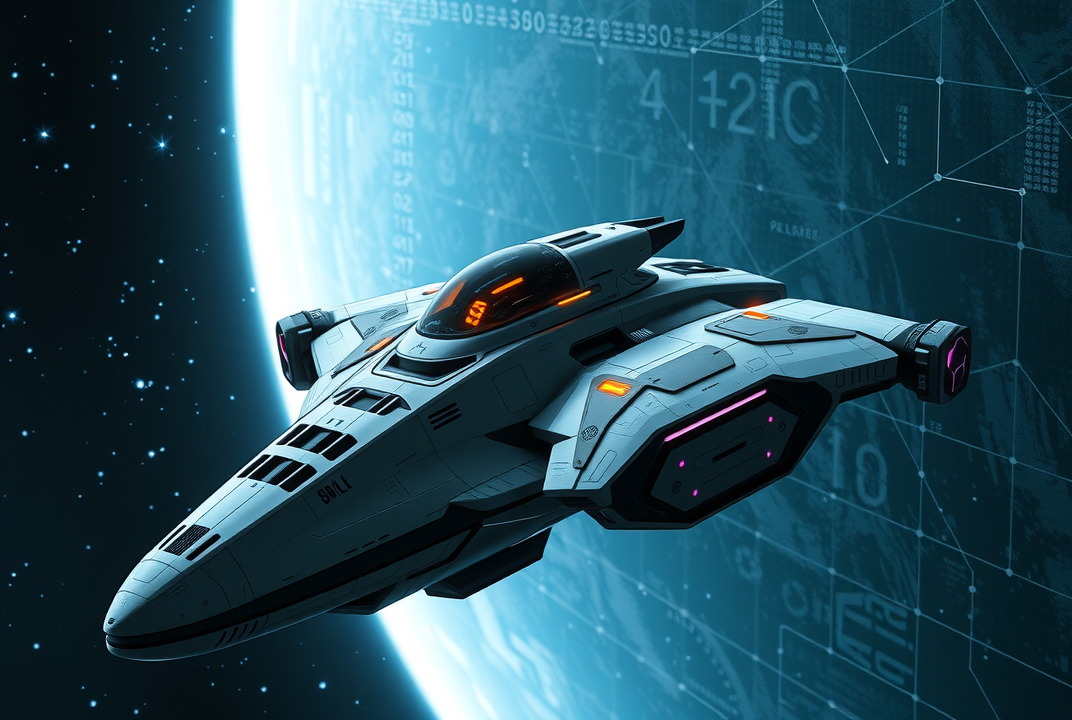Exploring the Role of AI in Space Exploration

Introduction
Did you ever wonder how astronauts manage space missions millions of miles away from Earth? The secret is often artificial intelligence (AI), playing a crucial role in space exploration today. AI is not just an Earth-based endeavor; it transcends our planet, helping to navigate vast distances where human presence is impractical or impossible.
In this article, we will explore AI's growing role in space exploration, from enhancing data analysis to enabling autonomous navigation in unknown terrains. We'll uncover the technologies driving these advancements and examine real-world applications such as NASA's Mars rovers and more.
The Need for AI in Space
Space travel presents unique challenges that require innovative solutions. From managing the massive data generated by telescopes to ensuring safety in missions, AI's ability to handle complex tasks makes it indispensable.
AI systems can process and interpret data at speeds unachievable by humans alone, enhancing mission accuracy and efficiency. Moreover, AI's predictive analysis capabilities are critical for making timely decisions in the unforgiving environment of space.
Enhancing Data Analysis
One of AI's primary roles in space exploration is managing and analyzing data. Satellites and spacecraft send vast amounts of information back to Earth, requiring sophisticated tools for interpretation.
AI algorithms can filter through enormous datasets, identifying patterns and anomalies that may indicate new discoveries. For instance, AI has been vital in processing images from space telescopes, helping scientists identify potential exoplanets.
Autonomous Spacecraft and Robotics
AI has enabled spacecraft to navigate autonomously, a key factor in missions to distant moons and planets where human control is delayed or impossible. Using machine learning, these crafts can make real-time decisions, avoid hazards, and select optimal paths.
NASA's Mars rovers, such as Curiosity and Perseverance, utilize AI to traverse the Martian terrain, conduct experiments, and transmit findings back to Earth. These advancements have dramatically increased the scope and efficiency of robotic missions.
AI and Human-Machine Collaboration
While AI's computational power is unmatched, human intellect and intuition remain irreplaceable. AI aids astronauts by handling routine or dangerous tasks, allowing them to focus on critical problem-solving aspects.
AI-driven systems on the International Space Station (ISS) assist in monitoring systems, predicting failures, and offering solutions, creating a synergy between human astronauts and machines.
Predictive Maintenance and Safety
The unforgiving environment of space exploration requires meticulous planning and maintenance. AI's predictive maintenance capabilities ensure that spacecraft systems remain operational by identifying potential failures before they happen.
Tools like AI-driven simulations and predictive models help engineers design robust systems and prepare for contingencies, enhancing safety and reliability in space missions.
Future Prospects of AI in Space
The future of AI in space exploration looks promising. With continuous advancements, AI is expected to enable fully autonomous missions and greater collaboration between international space agencies.
Emerging AI technologies like swarm robotics, where fleets of small robots work together, could revolutionize tasks like asteroid mining or lunar exploration. These systems promise to reduce costs and improve mission success rates.
Conclusion
The integration of AI in space exploration is transforming how we explore the cosmos. From enhancing data analysis to enabling autonomous navigation, AI plays a critical role in overcoming the challenges of space travel. As technology progresses, AI will undoubtedly lead to even more breakthroughs in our quest to understand the universe.
Space agencies worldwide continue to invest in AI research, ensuring that the next frontier of human discovery is both possible and sustainable. The journey has just begun, and with AI, the possibilities are endless in our exploration of space.